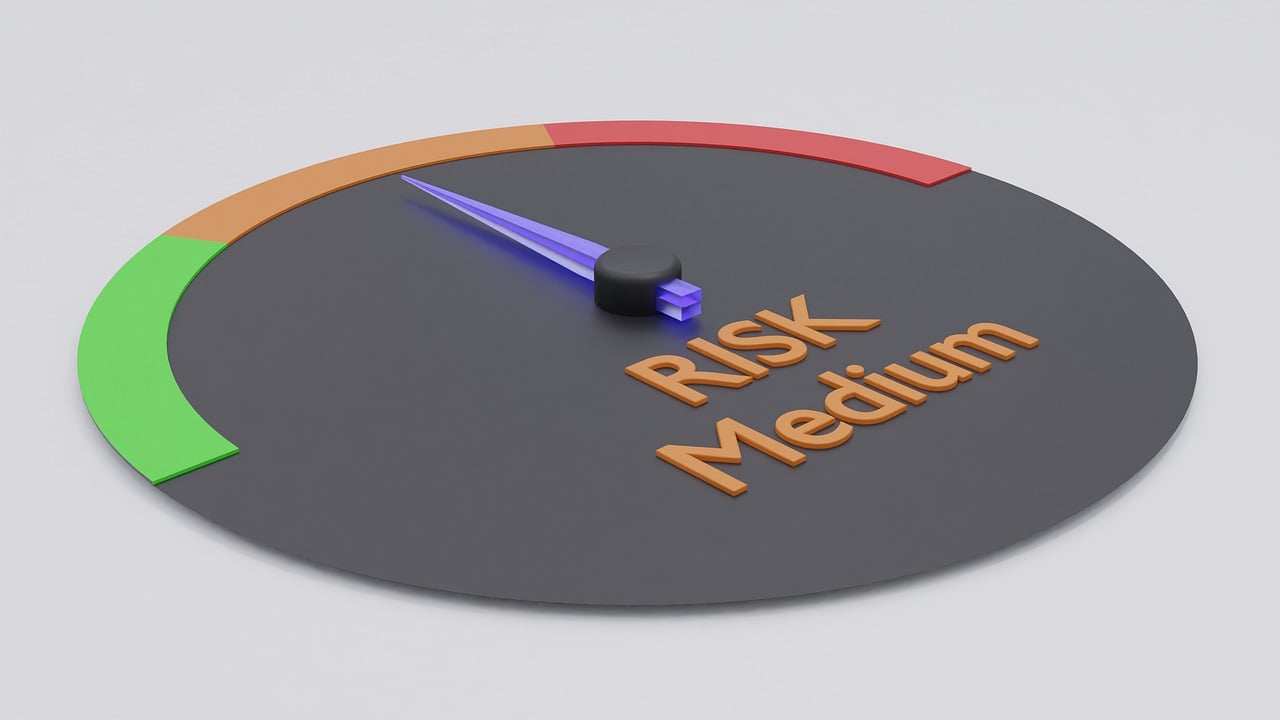Before I delve deep into the risks of cryptocurrencies, I do want to remind everyone that I am not a financial advisor and if you decide to get into crypto, you do so at your own risk. With that being said, let’s now get into the risks of cryptocurrency. While I’ve talked a lot on the positive side of crypto, there are still risks of investing in it (other than crypto scams). Cryptocurrency has exploded in popularity over recent years, capturing the imagination of tech enthusiasts and financial thrill-seekers alike. Everyone’s either talking about it or wondering what the fuss is about.
This digital currency is like the Wild West of finance, offering possibly thrilling returns but with a fair share of pitfalls. It’s no wonder that the buzz around it is as loud as ever. While some see it as a revolutionary way to handle money, others caution about the risks that lurk beneath its shiny surface.
The appeal often lies in the decentralized nature of cryptocurrencies. No banks, no intermediaries—just you and the network. This concept gives people control over their investments in a way traditional finance doesn’t, which attracts both fans of technology and advocates for financial privacy.
On the flip side, we must consider the volatility and unpredictability that come with cryptocurrencies. Prices can skyrocket or plummet without warning, making it an exhilarating yet nerve-wracking ride for investors.
Wading through the world of crypto requires a clear understanding of its dual nature—it’s a land of opportunity, but only for those who tread carefully and are well-informed. Don’t get swept away by the hype; knowledge and caution are your best friends here.
Navigating the General Risks of Cryptocurrency Investment
Investing in cryptocurrency offers a unique set of challenges and risks that can catch the unprepared off-guard. Here’s a closer look at some general pitfalls you might encounter.
One of the most significant concerns is the irreversible nature of transactions. Once a transaction is completed, there’s no going back. This feature is a double-edged sword—while it ensures transparency, it also leaves no room for error. Sending funds to the wrong address means they’re likely gone for good.

The digital landscape is also ripe with scams and fraudulent schemes, preying on those eager to jump on the crypto bandwagon. Phishing scams and fake investment opportunities are rampant. Staying vigilant and doing thorough research is non-negotiable to safeguard your assets.
Unlike the stock market, cryptocurrency lacks the lengthy track record that provides a historical context for predicting future trends. The market is relatively young and can be influenced by speculation and media hype, which adds another layer of risk for investors planning long-term.
As you step into the crypto arena, arm yourself with knowledge and proceed with caution. Use reputable platforms, double-check everything, and remain skeptical of offers that seem too good to be true. Remember, a thoughtful approach could save you from potential mishaps.
Market Volatility: The Roller Coaster Ride
Crytocurrency markets are famously unpredictable, offering thrills that are not for the faint-hearted. Prices can soar to incredible heights or plunge to alarming depths in a blink of an eye, often driven by factors that might seem random or obscure.
The market’s extreme volatility is chiefly due to a mix of speculation, investor behavior, and limited regulation. Even the mere mention of a policy change or a high-profile individual’s tweet can swing the markets wildly. Understanding these dynamics is crucial for anyone considering diving into the crypto space.

Some might recall moments when Bitcoin or other cryptocurrencies experienced massive gains, drawing investors in a frenzy to not miss out on potential profits. However, the boom is often followed by drastic drops, wiping out fortunes just as quickly as they were made.
Approaching such a volatile environment requires a strong stomach and a well-thought-out strategy. Diversifying your investments, setting clear limits on losses you’re willing to bear, and keeping track of market news can help manage risks associated with rapid price fluctuations.
Navigating these financial roller coasters means staying informed and prepared. Ensure you have a plan to weather these dramatic shifts, and remember that the ride isn’t over until you decide it’s time to step off the train.
I found out very recently how market volatility can really affect one’s investments. I had invested in a cryptocurrency over a year ago called Geojam (I’ll talk more about that cryptocurrency soon so check back) on a crypto exchange called Uphold. It was worth under a penny back then and still is today, but it was worth a lot less then than what it is now and I bought a lot of those tokens in the hopes that it would reach at least a penny ore more and I would’ve made a great deal of profit. Now it did go up a bit to where it was worth more than 3 times my initial investment of it at one point.
Well a week ago, I noticed on the exchange it dropped EXTREMELY fast and I was curious as to why that was happening. Upon investigation, the company that created Geojam had tweeted that the exchange Uphold and the company had a disagreement and Uphold decided to no longer list the token on its exchange. That kind of left me in a little bit of a panic as I had to quickly decide what to do with it before it dropped even further and I would soon no longer be able to do anything with it. Since it’s an ERC-20 token (meaning works on the Ethereum network) I decided to move it to a cold wallet that I own in the Ethereum network for the time being.
This is why you must do a lot of research and pay attention as much as you can to the prices of cryptos that you’ve invested in. With the lack of protections that traditional investments have such as stocks and bonds, cryptocurrencies are still relatively new and lack those kind of protections and regulations and so volatility is much more prevalent in the crypto world. I’m not saying you shouldn’t invest in digital assests, but wild price swings are not out of the question with them.
The Regulation Conundrum: Lack of Oversight and Its Implications
One of the most pressing issues in the cryptocurrency world is the regulation—or rather the lack thereof. While some see this as a feature, offering freedom and autonomy, others see it as a glaring risk.
The current regulatory landscape is a bit of a patchwork, with varying approaches in different countries. Some nations embrace crypto with open arms, creating favorable environments for growth, while others remain wary, placing restrictions or outright bans.

This lack of uniform regulation leads to uncertainty and unpredictability for investors. Regulatory changes can have sweeping impacts on the market, causing significant price swings and operational challenges. It’s like walking a tightrope where the rules can change halfway across.
There are also security concerns tied to the absence of regulation. Without clear guidelines and oversight, the risk of fraud and misuse is higher, as authorities might not have the tools or power to act swiftly and effectively.
As the crypto landscape matures, one might wonder how future regulations will shape the market. Investors should keep an ear to the ground, staying updated on regulatory trends and considering how these developments might impact their investments.
There are two cryptocurrencies that do have some clarity from the US Government and its judiciary system. Bitcoin has been deemed not a security by the SEC. With that being said, the SEC views that MOST other cryptocurrencies either are, or at least the sale of them, securities. There is a very well known case that has been ongoing since 2020 which is the lawsuit against the crypto company Ripple for its cryptocurrency XRP, being a security. I’ve talked a lot about that already and you can read more about that here.
The lawsuit appeared to be over not to long ago as Judge Torres ruled last summer that XRP on secondary markets are not securities, but that the institutional sales in the past directly from Ripple are securities. Because of that, she recently ruled that Ripple pay a $125 million fine. The company was all prepared to do that, but the SEC appealed to the US Circuit Court of Appeals, Ripple just cross appealed that and two other crypto firms are now suing the SEC for its stance on cryptocurrency for its misleading statements saying that cryptocurrencies themselves are not securities, but they continue to label XRP as a security. This is why Congress needs to step in as soon as possible with digital asset regulation and remove the SEC from its aweful policy towards them.
This is why a lot of times you want to engage with reputable sources and financial experts to navigate this aspect of crypto investing. It’s essential to understand not just the current state but also the potential changes on the horizon, as these could play a crucial role in the safety and success of your investments.
Exploring the Diverse World of Cryptocurrencies
The cryptocurrency universe is vast and varied, with each type offering its own set of features, benefits, and risks. While Bitcoin and Ethereum are household names by now, they’re just the tip of the iceberg.
Bitcoin often grabs the headlines with its status as the original cryptocurrency, a sort of digital gold that others are measured against. Yet, Ethereum follows closely, with its smart contracts and decentralized applications that have opened new pathways in blockchain technology.
Then there are thousands of altcoins—alternative cryptocurrencies—that cater to specific needs or market niches. Some promise faster transactions, others focus on enhanced privacy, or aim for entirely new use cases.

However, the allure of lesser-known or emerging cryptocurrencies comes with specific risks. These new entries can be highly volatile and susceptible to market manipulation, sometimes even lacking the robust security features of their more established counterparts.
When considering investing in various cryptocurrencies, doing your due diligence is imperative. Understand the purpose behind each coin, its development team, and its market positioning. Diversifying your portfolio while staying informed about emerging trends can help you mitigate risks. One thing to look for when researching cryptocurrencies is to see what its utility is (the whole purpose it was created for). What type of problem does it solve? Ripple’s XRP is solving cross border payments by making it MUCH faster to transfer money compared to the outdated SWIFT system. The CEO of Ripple has basically said that they want the company to be the internet of money meaning you access money the way you access websites and things on the internet, very quickly, and safely, anywhere in the world and 24 hours a day.
This diverse world of cryptocurrencies is teeming with potential opportunities, yet requires careful navigation. Approach each new investment with cautious optimism and a thirst for knowledge, ensuring your journey into the digital currency realm is both exciting and manageable.

